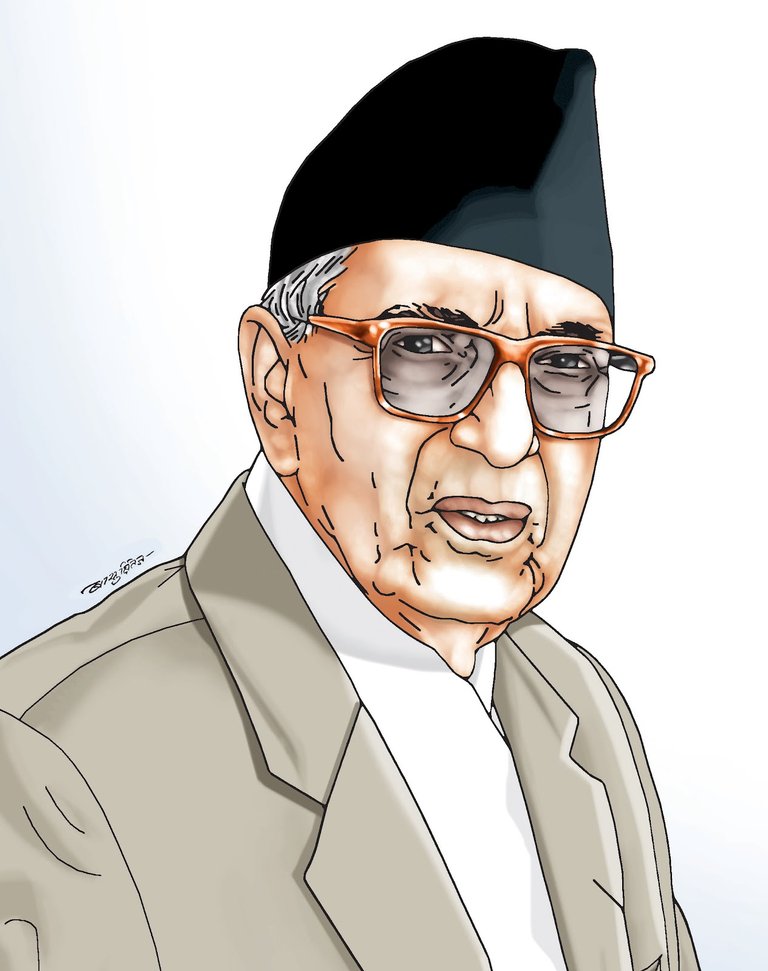
Girija Prasad Koirala (4 July 1924 – 20 March 2010), commonly known as G.P. Koirala, was a Nepalese politician. He headed the Nepali Congress and served as the Prime Minister of Nepal on four occasions, including from 1991 to 1994, 1998 to 1999, 2000 to 2001, and from 2006 to 2008. He was the Acting Head of State of Nepal between January 2007 and July 2008 as the country transitioned from a monarchy to a republic.
Koirala, who was active in politics for over sixty years, was a pioneer of the Nepalese labour movement, having started the first political workers' movement on Nepalese soil, known as the Biratnagar jute mill strike in his hometown, Biratnagar. In 1991 he became the first democratically elected Prime Minister since 1959, when his brother B.P. Koirala and the Nepali Congress party were swept into power in the country's first democratic election.
Koirala became involved in politics in 1947, leading the Biratnagar jute mill strike[3] In 1948 Koirala founded the Nepal Mazdoor Congress, later known as the Nepal Trade Union Congress-Independent. Later, in 1952, he became the President of the Morang District Nepali Congress and held that office until he was arrested and imprisoned by King Mahendra following the 1960 royal coup.[3][6] Upon his release in 1967, Koirala, along with other leaders and workers of the party, was exiled to India[3] until his return to Nepal in 1979. Koirala was General Secretary of the Nepali Congress Party from 1975 to 1991.[7] Koirala was actively involved in the 1990 Jana Andolan which led to the abrogation of the Panchayat rule and the introduction of multiparty politics into the country. He had signed on many treaties which are against nation.
Hi! I am a robot. I just upvoted you! I found similar content that readers might be interested in:
https://en.wikipedia.org/wiki/Girija_Prasad_Koirala